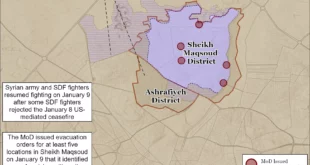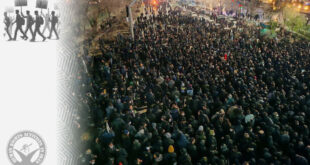 GAZA CITY (AP) — Prime Minister Ismail Haniyeh of Hamas on Thursday accused the United States of undermining efforts to form a new coalition government and called on Europe to take the lead in lifting international sanctions against the Palestinians.
GAZA CITY (AP) — Prime Minister Ismail Haniyeh of Hamas on Thursday accused the United States of undermining efforts to form a new coalition government and called on Europe to take the lead in lifting international sanctions against the Palestinians.
European diplomats visiting the West Bank Thursday indicated formation of a unity government with Palestinian moderates could lead to restoration of vital foreign aid.
Haniyeh spoke a day after US Secretary of State Condoleezza Rice said the new Palestinian government would have to accept international demands to renounce violence and recognise Israel.
“The US administration does not want the Palestinians to be unified. It puts obstacles in the way of this political coming together,” Haniyeh told reporters. “It wants to extort the Palestinian people and the Palestinian government.”
Hamas, which has controlled the Palestinian government since March, caved in to the intense international pressure this week and agreed to share power with moderate President Mahmoud Abbas’ Fateh Party.
While refusing to give up its calls for Israel’s destruction, Hamas has said that it will support Abbas’ efforts to seek peace.
The joint government, which is expected to take several weeks to form, is to be based on a document that calls for a Palestinian state alongside Israel — effectively recognising the Jewish state.
Abbas added conditions to the timetable late Thursday. He said that before formation of a new government, the issue of an Israeli soldier captured by Hamas-linked fighters in June, as well as Palestinian prisoners held by Israel, must be resolved. Also, he said, there must be “complete calm in the Palestinian territories”.
Palestinian leaders hope the compromise arrangement will be enough for donor nations to resume much-needed aid, which was cut off after Hamas took power. The aid halt has caused widespread hardship in the Gaza Strip and West Bank.
With the US maintaining a tough line, the Palestinians are increasingly hopeful that the European Union will be the first to ease the economic siege.
A stream of European dignitaries have visited the region this week for talks with Israel and Abbas.
After meeting Abbas in the West Bank city of Ramallah late Thursday, French Foreign Minister Philippe Douste-Blazy indicated formation of such a government could lead to resumption of assistance.
He welcomed the document implicitly recognising Israel.
He added that if the new government accepts international demands, “the international community should reevaluate and revisit its position towards political contacts and aid.” The French minister added: “It is obvious that we remain attached to the three principles of the Quartet” of Mideast peace mediators — recognition of Israel, renunciation fo violence and acceptance of previous peace accords.
Abbas also received a boost Thursday from Luxembourg’s Foreign Minister Jean Asselborn.
“Israel has all the interest to support this initiative and the Americans have all the interest to support it, but first, it is the responsibility of the European Union,” Asselborn said after meeting with Abbas. The visitor said he will do everything he can do to support the Palestinians at a meeting of EU ministers in Austria on Friday.
The “Quartet” of Mideast peacemakers — the US, EU, Russia and the United Nations — is expected to discuss the Middle East at a meeting in New York next week. The Quartet so far has shown given no indication that it will ease its demands of the Palestinians.
Haniyeh urged Europe to break with the United States. “We expect from the international community, and especially the European Union, to be more balanced and fairer in dealing with the Palestinians,” he said.
But in Brussels, EU officials said it was unlikely any major policy changes will take place until the new Palestinian government is formed.
In other developments, the Palestinians said they are sending a senior envoy to Syria to brief President Bashar Assad on the coalition talks. “We listen to them, they listen to us,” said the envoy, former prime minister Ahmed Qureia.
Syria hosts a number of Palestinian groups, including Hamas, and could exert considerable influence over the Islamic group.
Israeli police, meanwhile, said they opened an investigation into three Israeli Arab lawmakers who recently travelled to Syria. The visit came after the end of the recent war with Lebanon, infuriating many Israelis.
Syria is a key ally of Hizbollah, the Lebanese group that fought Israel.
In Gaza, a 30-year-old unarmed Palestinian man was killed Thursday by Israeli troops near the border with Egypt, Palestinian security and medical officials said. The Israeli military said soldiers opened fire at a “suspicious” figure who approached troops.
 Eurasia Press & News
Eurasia Press & News


